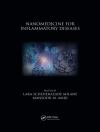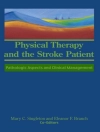This book provides information and resources to city planners and other public policy officials on the importance of smart sustainable cities and their relationship with urban knowledge-based economy. It answers important topical questions relating to urban sustainable development and human well-being, namely, how can we implement policies and programs that can make cities “smart” and boost their knowledge-based development? How can such programs reduce inequalities and enhance the environment where people live and work? The authors suggest a new approach to the creation of sustainable smart cities, not only in metropolises but also in smaller urban spaces. They advance the body of knowledge in entrepreneurship literature by examining both the European regional understanding of entrepreneurship and the quality of life and well-being at city levels. They also provide synthetic indexes to assess the relationship between perceived quality of life and entrepreneurship.
This book stimulates the debate on the role of smart cities in promoting entrepreneurship, which is a currently under-investigated topic in Europe, and is of interest to a wide range of practitioners, professionals and academics in the area of well-being and quality of life research, urban studies, public policy, and sustainable development.
Tabela de Conteúdo
Cities from the standpoint of the Knowledge-Based Economy: how can they become “smart and sustainable”?.- The history and evolution of cities in terms of the knowledge and sustainability sectors.- SSCs and the creation of a good environment for people, workers and enterprises.- SSC and Entrepreneurship.- Smart Sustainable Cities and the Urban Knowledge-Based Economy: the case of European cities.- Policy implication for Human Well-Being.- Future trends involving knowledge and sustainability issues in urban areas.- Conclusions.
Sobre o autor
Enrico Ivaldi Ph D, Researcher in Social Statistics, teaches ‘Introduction to Statistical Analysis for Social Research’ in the undergraduate course in International and Diplomatic Sciences, ‘Demography and Sustainable Development’ in the undergraduate course in Administration and Politics, ‘International Demography’ in the master’s course in ‘International Relations’ at the Department of Political and International Sciences, University of Genoa. He is a member of the Editorial Board of ‘Journal of Andalusian Studies’, a member of the Scientific Committee of the National Nautical Observatory, and a member of the faculty board of the Ph D program in Security, Risk and Vulnerability, curriculum in Management and Security, University of Genoa. He is also a member of the Econometrics Research Center of the Universidad de Buenos Aires, Argentina, and of the Pontifical International Marian Academy, Department of Integral Welfare, Vatican City. He is a member of several scientific societies, including the Italian Statistical Society and the Royal Statistical Society.
Andrea Ciacci is a Ph.D. Student in Security, Risk and Vulnerability, curriculum Management and Security, at the Department of Economics and Business Studies, in Genoa, Italy. He is a member of the Italian Society of Management, the Italian Society of Statistics, and the Center for Research in Econometrics (University of Buenos Aires, Argentina). He graduated with honors with a thesis entitled “Smart City and Entrepreneurship: a Comparative European Perspective”. His main research interests focus on strategic management, tourism management, and smart city. He authored papers published in international journals.












